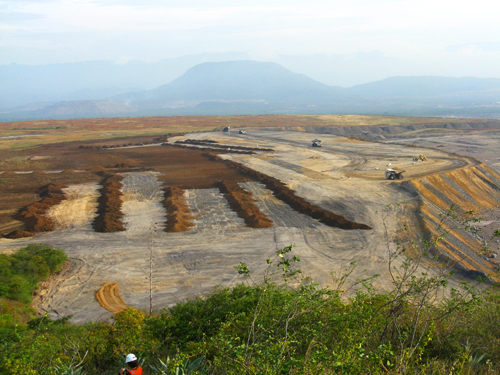
Cerrejón is an integrated mining and transport complex in the La Guajira region, jutting out into the Caribbean Sea from the north of Colombia. The mine is independently operated, but belongs in three equal parts to subsidiaries of BHP Billiton, Anglo American, and Glencore Xstrata: between them these partners approved investment of $1.3 billion in 2011 for an expansion project that will increase Cerrejon’s production and export capacity by 8 million tonnes per annum (mtpa) in 2012 - 2014 to reach a 40 mtpa production by 2015.
DOWNLOAD
 Cerrejon-AM-Mining-Oct13-Bro-s.pdf
Cerrejon-AM-Mining-Oct13-Bro-s.pdf










